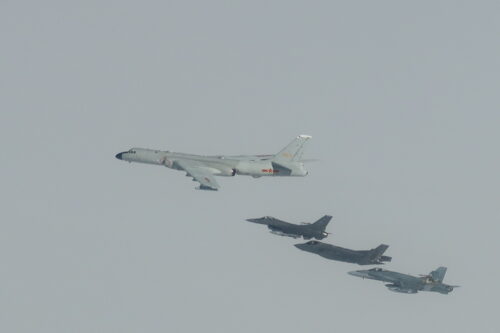North American Aerospace Defense Command (NORAD) conducted a series of intercepts involving Russian and Chinese military aircraft operating within the Alaska Air Defense Identification Zone (ADIZ) on Jul. 24.

Two Russian Tu-95MS and two Chinese H-6K aircraft were detected, tracked, and intercepted by NORAD fighter jets from the United States and Canada. While operating in international airspace, their presence within the ADIZ necessitated a response from NORAD which dispatched F-16, F-35 and CF-18 fighter aircraft.
NORAD emphasized that the aircraft did not enter American or Canadian sovereign airspace and the activity was not considered a threat. However, the command said it will continue to monitor competitor activity near North America and maintain a state of readiness.
The incident highlights the ongoing vigilance required to protect North American airspace. NORAD’s layered defense network, including satellites, ground-based, and airborne radars, along with fighter aircraft, remains essential in detecting and responding to potential threats.
An ADIZ is a designated area of international airspace where identification of aircraft is mandatory for national security purposes. It is distinct from sovereign airspace and requires aircraft to be readily identifiable by air defense authorities.
The incident underscores a broader trend of increased activity by both Russia and China in the region. U.S. Air Force Gen. Gregory M. Guillot, head of NORAD and U.S. Northern Command, expressed growing concerns about China’s expanding capabilities.
In a congressional testimony earlier this year in March, Guillot warned, “Fortunately, we haven’t seen Chinese aircraft operate near our air defense identification zones yet, but I think that that’s coming as early as this year.”
For more information, hit the Source below